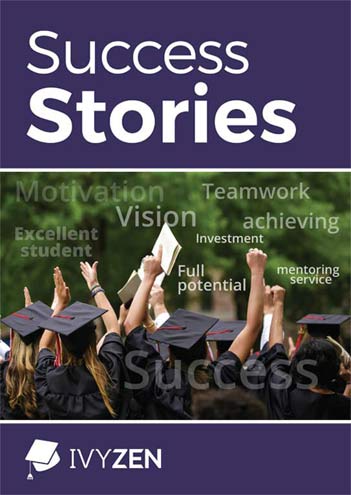Brian is a student that is hard not to love. He’s very well spoken, confident, and knowledgeable about many political issues.When he told me that he was both Model United Nations and student council president at his school, I wasn’t surprised; he had a polish to him that was rare at his age. For those with a shallow understanding of what top US universities are looking for, he appears to be the perfect applicant. But I knew that he had yet to tap into his full potential.
Throughout my first few interactions with Brian, I could see that his desire to change society was genuine, but I didn’t see MUN as a sufficient vehicle to highlight this desire. My main issue with MUN as an activity is that it is inherently a debate club. Granted, students learn about important current events, butin their sessions, there is a glaring lack of actual political action. Students throw around facts, opinions, and rhetoric to see who has the most persuasive argument, but it amounts to absolutely zero actual change.
One of the first projects that Brian and I worked on was founding an Amnesty International Club at his school. After showing him the recent success stories – actual political changes that happened at least partially as a result of Amnesty International – it was easy to convince him that this was the right path. We decided to make this the centerpiece of his “political activism” theme, a theme that appeals to the humanitarian responsibility of every top university.

Download our free Success Stories pdf for 6 success stories (with full student profiles) of students who gained admissions to Columbia, MIT, Caltech, Dartmouth and more!
I coached Brian on the process of getting his club recognized by the actual Amnesty International organization, and then with his natural charm, he was able to recruit dozens of classmates to join the cause. His club focused on creating petitions about the most recent human rights violations in Southeast Asia, Africa, South America, and other third world countries. Bringing awareness to these issues and pressuring governments to make change was rewarding enough for Brian, but his success eventually led to his becoming one of the first high school interns in Amnesty International’s history (at Amnesty USA headquarters in NYC). His hard work and eventual internship created a strong foundation for the leadership extracurricular portion of his political activism theme.
However, I knew that he had high aspirations for where he wanted to go to college, so I knew that we still needed to work on the scholarship portion of his theme. We decided to write a research paper that would highlight the intellectual side of his character and complement his already stellar leadership qualities. Brian was very interested in philosophy and ethics, and we would often have conversations about these topics as they relate to current events. At first, we toyed with the idea of writing a paper on philosophy but later decided that the perception of philosophy being disconnected from real life didn’t mesh well with his political activism theme.
I then told him about Game Theory, which, according to Roger B. Myerson, is “the study of mathematical models of conflict and cooperation between intelligent rational decision-makers.” We decided that the more practical game theory models that he would study better highlighted the kind of leader that he wanted to become: a rational and realistic thinker that didn’t view the world from an ivory tower. We decided to explore the Tragedy of the Commons from the lens of game theory, and after 6 months of research and hard work, he submit the paper to the Center for Complexity Education research journal and was published that year.
Both the leadership and scholarship pillars of his “political activism” theme were cemented into place, and that fall, he worked on his college applications. From all his leadership experiences, it was easy to find interesting and memorable stories to write about in his essays. However, I made sure that each and every Common App and supplemental essay aligned with his college application theme.
A few months later, I received a forwarded email from Brian from the University of Chicago that could have only been an acceptance message. U of Penn, Brown, and Columbia followed suit, and after weighing his preferences and the pros and cons of each school, he decided to attend Columbia for the Fall 2015 term.
Columbia, UPenn, Brown, UChicago Accepted Student’s Theme: Political Activism
Academic Index
GPA 3.8, SAT I 2270
Activities
Leadership: His leadership activities included Amnesty International as Founder/President. He was also the first high school intern in Amnesty International’s history (at Amnesty USA headquarters in NYC). He was also the MUN president and student council president.
Scholarship: His academic activities focused on a Game Theory paper which was published in a high school student journal called Center for Complexity Education as well as a history paper for which he won the National History Day competition in Korea and competed in Washington DC as the Korean representative.
For more success stories, tips and guidance on creating your student’s own unique and compelling theme sign up now for our downloadable booklet, Success Stories, featuring 6 Ivy League success stories about students who got into Columbia, MIT, Caltech, Dartmouth and more. Success Stories offers an intimate look at these students’ success stories as well as a detailed look at their profile. See what activities and programs helped them get into the schools of their choice.

Download our free Success Stories pdf for 6 success stories (with full student profiles) of students who gained admissions to Columbia, MIT, Caltech, Dartmouth and more!
